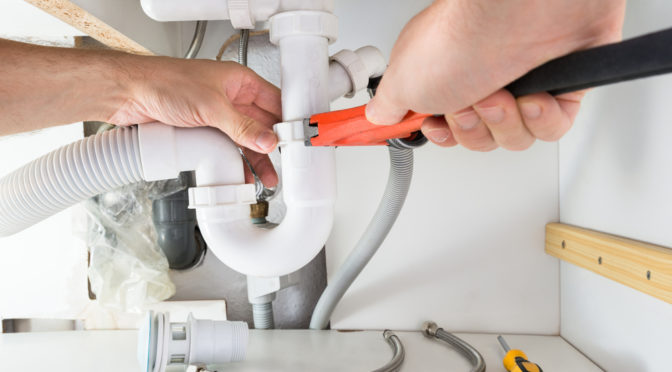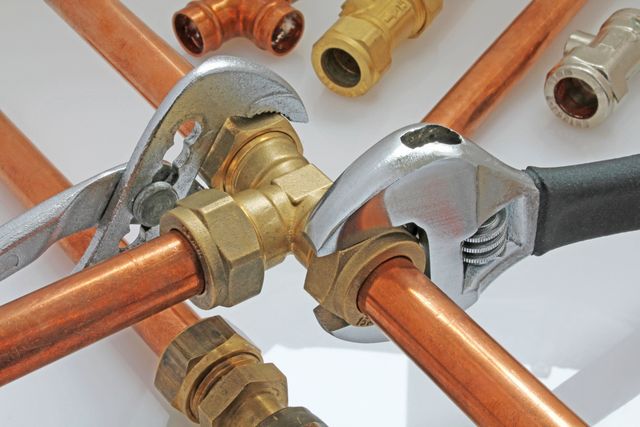The content below relating to What to Do While Waiting for an Emergency Plumber is relatively motivating. Read on and make your own findings.

Pipes emergency situations can strike any time, triggering anxiety and possible damage to your home. Whether it's a burst pipe, a stopped up drainpipe, or a dripping faucet, knowing exactly how to take care of the scenario until a professional plumbing technician gets here can save you from additional difficulties. This article gives essential emergency plumbing tips to aid you minimize damages and restore control during a plumbing crisis.
Turn Off the Water Supply
The first step in any kind of pipes emergency situation is to turn off the water system. For localized issues, such as a leaking faucet or commode, switch off the shutoff near the fixture. In the case of a major leakage or ruptured pipe, locate your home's major water shut-off shutoff and transform it off right away. Knowing the location of these shutoffs in advance can save important time during an emergency situation.
Address Little Leaks with Temporary Solutions
Tiny leaks can promptly come to be substantial troubles if left uncontrolled. Make use of these short-lived solutions till specialist aid shows up:
While these repairs aren't long-term, they can aid decrease water loss and damages.
Unclog Drains Pipes Safely
A blocked drain can be a discouraging and messy issue. Right here's just how to tackle it:
If these techniques don't function, avoid making use of excessive pressure, as it may aggravate the blockage.
Manage Overflowing Toilets
An overruning bathroom can cause prompt mayhem. Here's what you need to do:
Shut Off Your Water Heater
In particular emergencies, such as a burst pipe, it's wise to shut off your water heater. This stops getting too hot or damages to the system when water stops streaming. Shut off the power supply to the hot water heater (electric or gas) and let it cool down to avoid potential risks.
Briefly Quit a Ruptured Pipeline
A ruptured pipeline can cause substantial water damages in mins. To minimize the concern:
Call a professional plumbing technician quickly to address the issue completely.
Take Care Of Frozen Pipes Thoroughly
In chillier environments, icy pipes are a common emergency. If you presume an icy pipeline:
Avoid Additional Damage
Taking quick action to lessen damages can save you money and time over time. Right here's exactly how:
. Have an Emergency Plumbing Package
Prepare a standard pipes emergency situation set to deal with minor issues effectively. Your package must include:
Having these devices handy can make a substantial distinction in your capability to handle emergency situations.
Know When to Call an Expert.
While quick fixes can assist briefly, certain plumbing issues require prompt specialist focus. Call a plumbing professional if:.
Quickly contacting a specialist ensures the concern is dealt with correctly and stops further difficulties.
Final thought.
Pipes emergency situations can be frustrating, however with the right knowledge and devices, you can manage the scenario efficiently till help gets here. By shutting off the water, addressing little leakages, and using momentary fixes, you can reduce damages and keep your home safe. Keep in mind, these pointers are momentary solutions; constantly consult an accredited plumbing professional to deal with the origin of the issue. Preparation and fast thinking are your finest allies in any pipes emergency situation.
8 Helpful Tips for Managing Plumbing Emergencies at Home
If your plumbing system hasn’t failed once, wait for it because almost everyone has a story to tell. Sometimes, it could be simple emergencies such as a leaking pipe, a blocked cistern, or even a big burst pipe. In situations like this, you need to have some handy tips to save you some money and from possible damages.
Take care of minor issues early.
Sometimes, you could have avoided an emergency by taking proactive measures while it was still early. Some major plumbing emergencies can be a result of an ignored minor issue. We recommend that you have items like plumbing tapes and other related items. A plumbing tape can allow you to manage minor leaks before the plumber arrives.
Cut off the water supply.
This tip is essential in almost any type of leakage problem. For problems like minor leakages in the toilet or kitchen, turn off the supply that takes water to the affected pipes. If the leakage is a major pipe, you must shut off the supply valve to the entire building. This will help you avoid flooding your home and neighbors if you share a flat.
Know your plumbing system
Folks typically move into a new apartment without understanding the water supply around the building. This can prove disastrous if a water emergency arises and the plumber is far away. The previous tip will prove useless if you don’t practice this one. More importantly, know where your water shut-off valve is located – you’ll need that knowledge to prevent potential home floods.
Have some common handy tools
There are lots of plumbing emergencies that you can handle without hiring a plumber. That’s why you must keep some tools available always. Some tools that you can use to fix simple plumbing emergencies easily include plumbing tapes, screwdrivers, thread seal tapes, plungers, pliers, tape measures, and rubber gloves.
Insulate your pipes from cold
You’ll save yourself from many plumbing expenses if you protect your water pipes from the cold. This is because of the harmful effects that cold weather can have on your pipes. During winter, your pipes can burst from being overly expected to freezing temperatures. So, make sure insulators are there to keep the pipes working correctly.
Avoid practices that will clog your toilet.
Many people indulge in practices that can damage the plumbing system of the entire building. One of these is when they use their toilet to dispose-off garbage. They flush all kinds of things, such as paper towels, bandages, hairs, female sanitary products, etc., down the toilet. This will block your toilet in the long run, incurring unnecessary expenditures. Dump such waste in the trash instead.
Check your dials regularly.
Sometimes, there could be leakages in your home without noticing them in time. So, constantly monitor your water meter dial. If the dial is reading when there is nobody using water, this is an indicator that there is leaking. Check for leaks immediately. Call a plumber as soon as possible if you can’t find any.
https://www.constructionplacements.com/8-helpful-tips-for-managing-plumbing-emergencies-at-home/

We had been introduced to that report about Plumbing Emergencies: Tips on What To Do Before through a friend on another website. Those who liked our blog entry plz don't forget to pass it around. We thank you for your readership.
Call Today